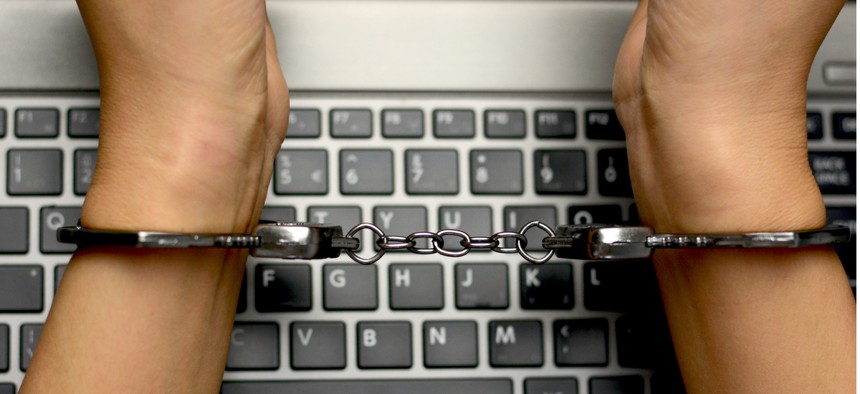Fighting Cyber Crime is Critical for National Security, Says Secret Service Chief

Eviart/Shutterstock
While election interference, espionage and power grid threats get all the attention, nation-states also lean on cyber criminals to conduct operations on their behalf, according to Director James Murray.
As government leaders work to defend the country’s digital infrastructure against foreign adversaries, they shouldn’t overlook the role cyber criminals play in those geopolitical clashes, according to the head of the Secret Service.
When it comes to international cyber conflict, people tend to focus their attention on election interference, economic espionage and other threats posed by nation-state actors. And while fighting those malicious campaigns is essential to national security, pursuing digital criminals is an equally important part of the equation, said Secret Service Director James Murray.
“I’m not looking to downplay the threats posed by nation-states,” Murray said Wednesday at the Aspen Cyber Summit in New York City. “On the contrary, I’m saying that … we see the arrest and conviction of transnational organized criminals as an indispensable component of addressing the wider challenge. It is an essential element of the whole-of-government approach to reducing the full range of cybersecurity threats, including those threats posed by nation-states.”
While the Secret Service is best known for protecting top government officials and their families, the agency is also responsible for investigating financial fraud and cyber crimes. And in recent years, the latter has skyrocketed, Murray said.
The global costs of ransomware, data breaches and other cyberattacks exceed an estimated $600 billion per year, but the consequences of cyber crime extend far beyond financial losses, according to Murray.
The criminals are often the ones who pioneer new methods of breaking into networks and stealing information, paving the way for nation-state adversaries to adopt those same tools and techniques into their own digital arsenals, he said. And because these hackers are on the cutting-edge of their craft, he added, foreign governments will sometimes rely on criminal groups to conduct operations on their behalf.
In some cases, governments and cyber criminals work so closely together it’s difficult to distinguish one from the other. Those blurred lines are perhaps most evident in North Korea, where a hacker ring known as the Lazarus Group stole more than $1 billion to support the country’s nuclear weapons program.
This intertwining of criminal organizations and government operations also give foreign adversaries a level of deniability, making it the already difficult process of attributing attacks even harder, Murray added.
In the coming years, he said the Secret Service will significantly ramp up its efforts to fight online criminals. The agency is preparing to embark on a five-year modernization of its electronic crimes task forces that will promote “the arrest and prosecution of the highest-value targets,” Murray said. Officials will also stand up seven new task forces in the coming years while bringing more resources and new technologies to existing units.
Additionally, the agency plans to expand its Global Investigations Operations Center to better coordinate the worldwide pursuit of cyber criminals and launch more training programs to boost agents tech-savvy.
“The fight against cyber crime and the effort to defend the country against national security threats are inextricably linked,” he said. “Fighting cyber crime is defending national security.”
In a report published Wednesday, the cybersecurity firm CrowdStrike said more than 60% of the malicious campaigns they uncovered during the first half of 2019 were conducted by cyber criminals as opposed to state-sponsored actors, up from 25% the year before.
NEXT STORY: Background checks move to DOD






